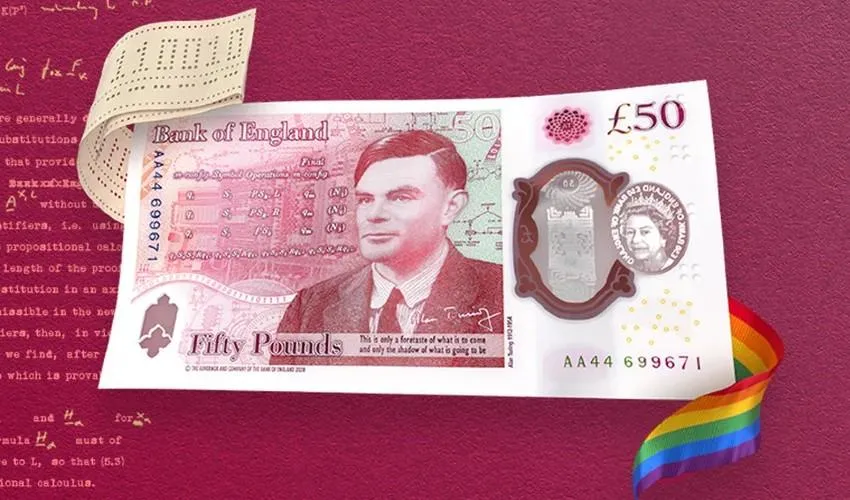
Celebrating Pride, Turing, and LGBTQ Presence in STEM Disciplines
This June is pride month, which celebrates the 52th anniversary of the Stonewall riot, the event that marked the beginning of the modern LGBTQ rights movement. This month also marks the 109th anniversary of the birth of Alan Turing (23 June, 1912), the British mathematician, code-breaker, founder of computer science, and pioneering researcher on AI and on computational biology. Always ahead of his time in his thinking, Turing would have probably made groundbreaking contributions to computing in the 1960s and 1970s, but, persecuted for his homosexuality, he died, probably by suicide, in his early forties in June 1954. Today, the Bank of England celebrates the scientist, launching a new £50 banknote which features Turing (see image above).
In 2012, ahead of the centennial of his birth, a number of initiatives were planned all over the world to celebrate Alan Turing's legacy. Most of these initiatives took the form of conferences where researchers working in one of the areas impacted by Turing's work talked about how their field evolved over the last several decades.
Missing from these celebrations was a key question of Turing's legacy: how have things evolved, over the last several decades, for LGBTQ researchers working in computer science and other fields pioneered by Turing?
To fill this void, I told several of my friends and colleagues that we should "put the gay back in the Turing centennial" and tell stories of LGBTQ theoretical computer scientists. A number of gay and lesbian colleagues responded to this proposal, and so did a straight ally, and I collected their essays on my blog. They can be found at
https://lucatrevisan.wordpress.com/tag/turing-centennial/
Rereading these essays after nine years, it is inevitable to see the cultural shifts that have taken place in these years. Discrimination of same-sex couples in immigration rules and in other aspects that affect academic research were a big deal in 2012. In 2021, same-sex marriage is the law of the land in most Western countries, sadly not including Italy (but even in Italy we have civil unions that provide many of the duties and privileges of marriage). Nine years ago, none of my respondents were trans, while now I know a number of trans theoretical computer scientists, including a former undergraduate student and a former graduate student of mine.
A number of issues, however, remain as timely today as they were nine years ago.
A common theme in the essays was that people experienced a community that was very supportive about their coming out, but they had not known what to expect, and they experienced their coming out as a leap of faith. I think that, in most STEM fields, both dynamics are common, that there is warm acceptance of diversity, but also that there isn't much awareness and discussion, so that each generation of young graduate students has to make a leap of faith when coming out. I believe in the importance of LGBTQ visibility in STEM, to mitigate the latter issue.
Irit Dinur, a professor at the Weizmann institute in Israel, spoke of the parallel between the sense of "coming home" to her community that she experienced the first time she attended a pride celebration, and the sense of also "coming home" to a community that she experienced when she began graduate studies. I had never thought of this parallel before she wrote about it, but it very much matches my own experience. Ashwin Nayak, a professor at the University of Waterloo in Canada, wrote a deeply affecting personal narrative about his coming out years as a student in Berkeley and a postdoc at Caltech.
I hope that, in time for the Turing bicentennial, and hopefully much earlier, we can see a more visible and proud LGBTQ presence in STEM, contributing to breaking down stereotypes both about STEM careers and about LGBTQ people, as part of a broader progress of society beyond stigmatization, discrimination and stereotyping, so that all individuals can rightfully feel that all life paths are open to them, without regard for the particular intersection of characteristics that make each person unique. Happy Pride to everybody!